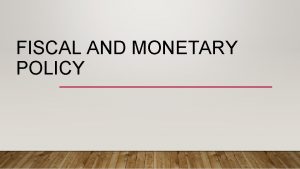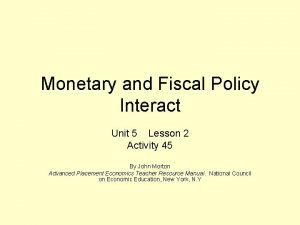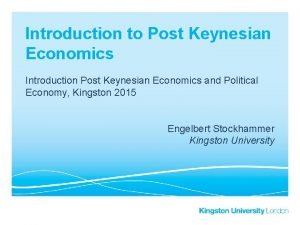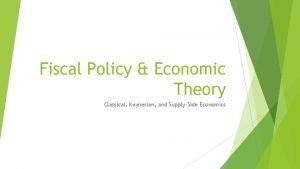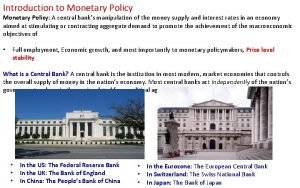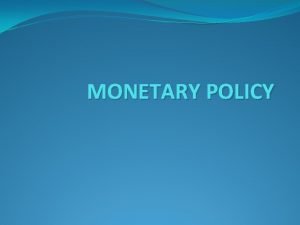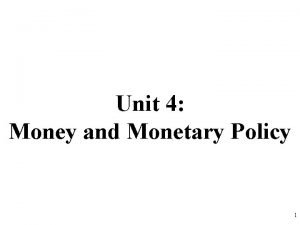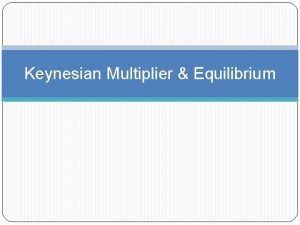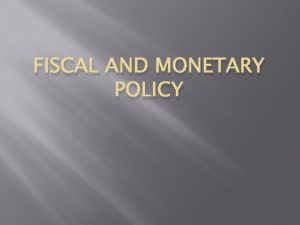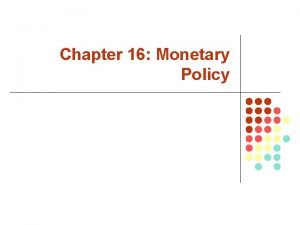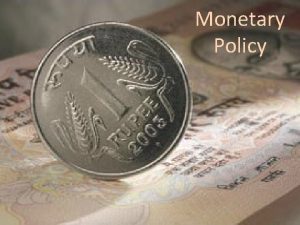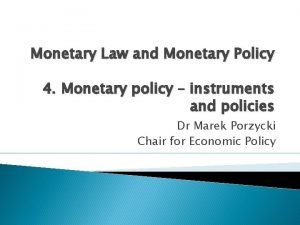Keynesian fiscal Monetary policy Monetary Fiscal Policy in







- Slides: 7

Keynesian fiscal & Monetary policy

Monetary & Fiscal Policy in Keynesian System

5. Keynesian Economics & Developing Countries • Joseph Schumpeter “ Practical Keynesianism is a seedling which cannot be transplanted into foreign soil, it dies there and become poisonous before it dies. But left in English soil, this seedling is a healthy thing and promises both fruit and shade”

Keynesian Assumptions & Developing Countries 1. Assumes the existence of cyclical unemployment in the economy in depression which is caused by deficiency of AD. Developing countries unemployment due to lack of capital resources & not deficiency in AD. no solution to Disguised & chronic unemployment 2. Short period analysis where capital stock, labour, technology & social structure of economy are assumed to be given. Developing countries unemployment due to lack of capital resources & not deficiency in AD. no solution to Disguised & chronic unemployment

. 3. Applicable to closed economies Developing countries open economies 4. Assumes the presence of excess capacity in the economy which applies to developed economies in depression Developing countries deficient resources & no problem of surplus capacity 5. Both labour & capital are simultaneously unemployed in the economy (UK & USA during 1930’s) Developing countries no surplus capital & unemployment

Keynesians & Monetarist Views On Monetary Policy MV = PT • Argue that in long run V is determined independently of M. Thus a change in M leaves V unaffected but brings corresponding change in expenditure in the economy. • Monetarist therefore claim that monetary policy over long term is an extremely powerful weapon for controlling AD • Argue that V tend to vary inversely with M , but rather unpredictably. An increase in M will not necessarily have much effect on spending , instead people may simply increase their holding od idle balances with a corresponding decline in the speed with which money circulates (V) • Amount of idle balances people will hold depends on their expectations of changes in interest rates, prices & exchange rates. Since expectations are difficult to predict , Keynesians claim that monetary policy is extremely unreliable weapon for controlling aggregate demand.

